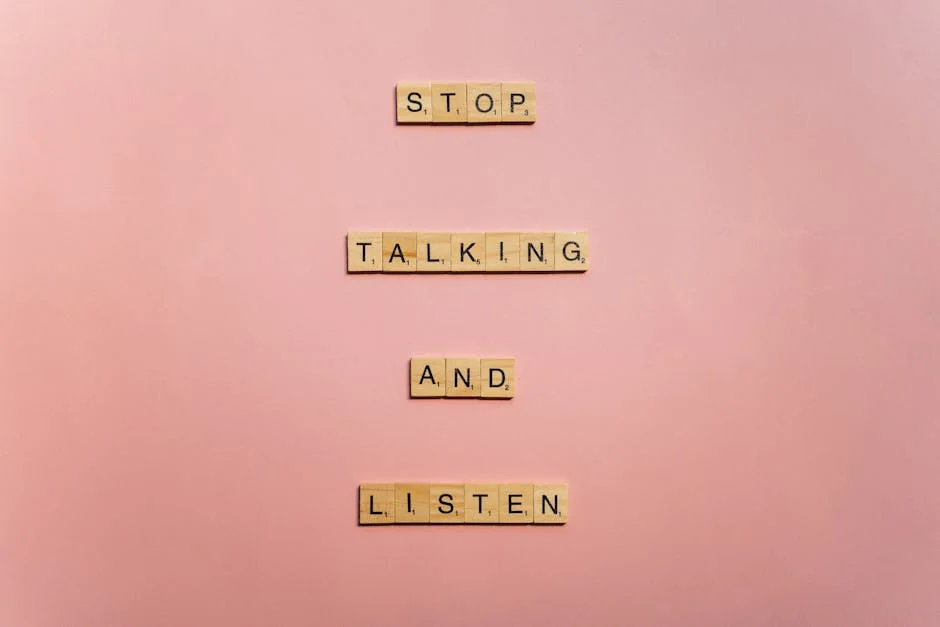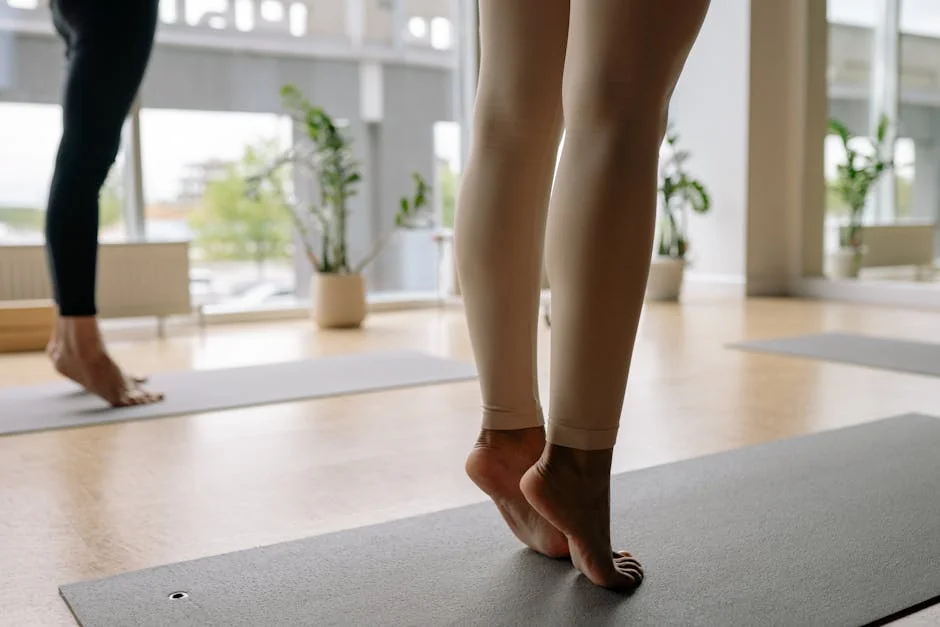Why I Decided to Test This
I'll be honest with you—I never thought I'd be the meditation type. The whole idea of sitting still and "doing nothing" seemed counterintuitive to someone like me who thrived on productivity and constant motion. But by March 2024, I was burning out fast.
My mornings started with immediate anxiety. Before my feet even hit the floor, my mind was already racing through my to-do list, replaying yesterday's mistakes, and catastrophizing about upcoming deadlines. I was sleeping poorly, snapping at my partner over trivial things, and consuming coffee like it was my job. My Apple Watch kept sending me notifications about elevated heart rate during rest periods, which only made me more anxious.
The final straw came during a work presentation when I completely blanked mid-sentence. My mind just... froze. The embarrassment was crushing, but more than that, I realized I had lost control of my own mental state. A friend who'd been practicing meditation for years suggested I give it a serious try—not just the occasional five-minute app session, but a committed daily practice.
I was skeptical, but desperate enough to try anything. I decided to commit to three months of daily meditation and document everything. This is what actually happened.
My Starting Point
Before I began, I wanted to establish some baseline metrics so I could track real changes—not just vague feelings of "improvement."
My specific problems:
- Waking up 2-3 times per night with racing thoughts.
- Average resting heart rate of 78 bpm (higher than ideal for my age).
- Difficulty focusing on single tasks for more than 15 minutes.
- Constant tension in my shoulders and jaw.
- Irritability score of 7/10 on most days (self-rated).
- Taking 30-45 minutes to fall asleep each night.
My frustrations: I had tried meditation before—maybe 5-10 times over the years using various apps. Each time, I'd sit there for five minutes feeling like I was doing it wrong, get frustrated that my mind kept wandering, and quit. I thought meditation was supposed to quiet your mind immediately, and when it didn't, I assumed it "didn't work for me."
I also had this misconception that traditional meditation required some sort of spiritual belief system or that I needed to sit in perfect lotus position for an hour. These assumptions had kept me from taking it seriously.
The Process: Week by Week
Week 1: The Difficult Start
I started on a Monday morning—March 4th, 2024. I downloaded the Insight Timer app (free version) and chose a 10-minute guided meditation for beginners. I set my alarm for 6:30 AM, giving myself time before work.
Day one was harder than I expected. Sitting still felt physically uncomfortable. My nose itched. My back hurt. My mind wandered to my inbox approximately every 15 seconds. When the instructor said "simply notice your thoughts without judgment," I judged myself for having so many thoughts. The irony wasn't lost on me.
By day three, I almost quit. I wasn't feeling any different—if anything, I was more aware of how chaotic my mind was, which felt worse. But I'd told my partner about this experiment, and the accountability kept me going.
The breakthrough in week one was small but significant: On day five, I noticed I was breathing. I know that sounds ridiculous—of course I was breathing—but I mean I actually noticed my breath for maybe three consecutive breaths without my mind wandering. It lasted maybe 10 seconds, but it was the first moment I understood what meditation was actually trying to teach me.
By the end of week one, I hadn't missed a day, but I was still skeptical about whether this would lead to any real changes. My sleep hadn't improved. I still felt anxious. My resting heart rate was still 77 bpm.
Week 2-3: First Signs of Progress
Week two is when I started making adjustments. The 10-minute guided meditations were feeling too rushed, so I extended to 15 minutes. I also switched from morning-only to twice daily—15 minutes in the morning and 10 minutes before bed.
I experimented with different meditation styles:
- Body scan meditations (my favorite for evening).
- Breath-focused meditation (best for morning).
- Loving-kindness meditation (felt awkward at first, but grew on me).
- Noting practice (mentally labeling thoughts as "thinking" or "planning").
Around day 12, something shifted. I was in a frustrating work meeting, and I felt that familiar chest tightness that usually preceded me saying something I'd regret. But this time, there was a tiny gap—maybe half a second—where I noticed the feeling before reacting to it. I didn't say the snippy comment I'd been about to make. The moment passed.
It was subtle, but it was the first time I'd seen meditation actually work in real life, outside of my practice sessions.
By week three, I noticed I was falling asleep faster—down to about 20 minutes. My partner commented that I seemed "less on edge." I was still waking up during the night, but only once instead of 2-3 times.
The biggest surprise was how much I started looking forward to my meditation time. It stopped feeling like another task on my to-do list and started feeling like a refuge—the only 25 minutes of my day where I had permission to do absolutely nothing productive.
Week 4: The Turning Point
Week four contained the moment that made me a true believer.
I was having a particularly stressful week at work—a major project was going sideways, and I was getting blamed for things outside my control. The old me would have spiraled into anxiety, lost sleep, and probably stress-eaten an entire pizza.
Instead, during my morning meditation on day 26, I had what I can only describe as a perspective shift. While sitting there, watching my anxious thoughts about work, I suddenly realized: these are just thoughts. They're not facts. They're not reality. They're just my mind's interpretation of a situation.
It sounds obvious written out, but experiencing it was completely different. For the first time, I felt separation between my awareness and my thoughts. I wasn't my anxiety—I was the person observing the anxiety.
That day, I handled the work crisis with a calmness that surprised even me. I didn't take things personally. I focused on solutions instead of spiraling about problems. My colleagues noticed the difference.
By the end of week four, my metrics were showing real changes:
- Resting heart rate: down to 72 bpm.
- Sleep onset time: down to 15 minutes.
- Waking at night: once or not at all.
- Subjective irritability: 4/10.
- Focus duration: up to 25-30 minutes on single tasks.
I increased my morning meditation to twenty minutes meditation because I wanted to, not because I felt I should.
Months 2-3: The Results
Months two and three were about consolidation and deepening. The dramatic changes had already happened; now it was about making the practice sustainable and noticing subtler benefits.
In month two, I started attending a weekly meditation group at a local yoga studio. Meditating with others added a new dimension—there was something powerful about shared silence. I also started reading about meditation, not from a self-help angle but from neuroscience and psychology perspectives. Understanding what was happening in my brain made the practice more compelling.
I experimented with longer sits—30 minutes, then 40, and one Saturday morning, I did a full hour. The longer sessions taught me that meditation isn't about achieving some special state; it's about building the capacity to be with whatever arises, whether that's peace, boredom, anxiety, or physical discomfort.
By month three, meditation had become as automatic as brushing my teeth. I didn't need motivation or discipline anymore—I just did it. My morning practice was 25 minutes, evening practice was 15 minutes, and I was maintaining this seven days a week.
The benefits extended beyond what I'd originally hoped for:
Mental clarity: My thinking became sharper. I could hold complex problems in my mind without getting overwhelmed. Decision-making felt easier because I wasn't clouded by emotional reactivity.
Emotional regulation: I still felt anger, frustration, and anxiety—but they no longer hijacked me. There was always that small gap between stimulus and response where I could choose how to react.
Physical health: The tension in my shoulders and jaw had largely disappeared. I wasn't grinding my teeth at night anymore (my dentist confirmed this at my checkup). My digestion improved—apparently, I'd been eating in a stressed state for years.
Relationships: My partner said I was "more present" and "easier to talk to." I wasn't constantly half-listening while planning my next task. I could actually sit through a conversation without mentally wandering.
Sleep quality: This was perhaps the most dramatic change. I was falling asleep in 10 minutes or less, sleeping through most nights, and waking up feeling actually rested.
The Concrete Results
Let me give you the hard numbers from my three-month experiment:
Before:
- Average resting heart rate: 78 bpm.
- Time to fall asleep: 30-45 minutes.
- Night wakings: 2-3 per night.
- Focus duration: 15 minutes maximum.
- Subjective stress level: 8/10.
- Meditation consistency: 0 days per week.
- Self-reported mood: 5/10 average.
After:
- Average resting heart rate: 68 bpm (-12.8%)
- Time to fall asleep: 10 minutes (-75%).
- Night wakings: 0-1 per night (-70%).
- Focus duration: 45+ minutes (+200%).
- Subjective stress level: 4/10 (-50%).
- Meditation consistency: 7 days per week.
- Self-reported mood: 7.5/10 average (+50%)
Additional metrics:
- Total meditation sessions completed: 186 out of 186 possible days (100% consistency).
- Total hours meditated: 62.5 hours
- Coffee consumption: down from 4 cups to 1-2 cups daily.
- Stress-related headaches: down from 3-4 per week to 1-2 per month.
What I Learned (That Nobody Tells You)
Positive Surprises
Meditation isn't about stopping thoughts. This was the biggest revelation. I'd been doing it "wrong" all those years because I thought success meant achieving a blank mind. Actually, meditation is about noticing thoughts without getting caught up in them. Your mind is supposed to wander—that's literally the point. Each time you notice it wandering and bring attention back, that's a "rep" in your mental gym.
The benefits compound exponentially. The first two weeks showed minimal results. Week three had some improvements. But weeks 4-12 were where the magic happened. It's not linear—it's exponential. Most people quit before they reach the inflection point.
You become more yourself, not less emotional. I worried meditation would make me emotionless or passive. Instead, I feel emotions more fully—but I'm not controlled by them. I experience joy more deeply, sadness more cleanly (without the added suffering of resistance), and anger more briefly.
Physical benefits were more dramatic than mental ones. I expected mental clarity and stress reduction, but I didn't expect my chronic shoulder tension to disappear, my digestion to improve, or my resting heart rate to drop 10 points. The mind-body connection is real and powerful.
Disappointments
It's not a magic bullet for life problems. Meditation didn't solve my work stress, fix my relationships, or make difficult things easy. It gave me better tools to handle challenges, but the challenges still exist. Some days still suck—I just handle them better.
The time commitment is real. Forty minutes per day is substantial. That's almost 5 hours per week. For someone who was "too busy" to meditate before, finding this time required saying no to other things. It was worth it, but it's not free.
Progress isn't always visible day-to-day. There were weeks where I felt like nothing was changing, which was frustrating. The benefits are more visible in retrospect than in the moment. I had to trust the process during plateaus.
Not all meditation styles worked for me. I tried visualization meditations, mantra-based practices, and walking meditations. Some just didn't click. It took experimentation to find what worked, and what works might be different for you.
Do I Recommend It?
YES, if:
- You're willing to commit to at least 30 days (preferably 90) before judging results.
- You have 15-20 minutes daily you can dedicate to practice.
- You're dealing with stress, anxiety, sleep issues, or focus problems.
- You're open to the idea that doing "nothing" can actually be productive.
- You want to improve emotional regulation and self-awareness.
- You're willing to feel uncomfortable and stick with it anyway.
NO, if:
- You're looking for immediate results or a quick fix.
- You're unwilling to sit with discomfort (physical or mental).
- You expect it to solve all your problems without other changes.
- You're not able to commit to daily practice (consistency is everything).
- You're dealing with severe mental health issues without professional support (meditation can help but isn't a replacement for therapy or medication).
What I Would Do Differently
If I could start over with what I know now, here's what I'd change:
Start with 5 minutes, not 10. I made meditation harder than necessary by starting with 10-minute sessions. Five minutes is enough to build the habit, and you can always extend once it's established.
Join a group or find a teacher earlier. I waited until month two to join a meditation group. Having guidance and community from the start would have helped me avoid common beginner mistakes and stay motivated during tough weeks.
Track metrics from day one. I wish I'd been more systematic about tracking sleep, heart rate, and mood from the beginning. Having data made the benefits undeniable when motivation waned.
Explore different styles sooner. I stuck with basic breath awareness for too long. Trying meditation to clear your mind and other approaches earlier would have kept things interesting and helped me find what worked best.
Be more patient with myself. I spent too much time in the first month judging whether I was "doing it right." If I'd understood from the start that there's no wrong way to meditate (as long as you're making the effort), I would have been less frustrated.
Prepare my environment better. I eventually created a dedicated meditation corner with a cushion, blanket, and timer. Starting with this setup would have made the practice feel more special and less like an afterthought.
Conclusion: My Final Verdict
Three months ago, I was a stressed-out, sleep-deprived skeptic who thought meditation was for people with more patience and free time than me. Today, I'm someone who genuinely looks forward to sitting in silence for my daily practice. The transformation has been profound—not just in measurable metrics like heart rate and sleep quality, but in how I experience life itself. I'm more resilient, more present, and honestly happier. While it's not always easy to maintain the discipline, the benefits of having a consistent feel good meditation practice are undeniable. If you're on the fence about starting, I encourage you to take the leap—you might be surprised by what you discover about yourself.



